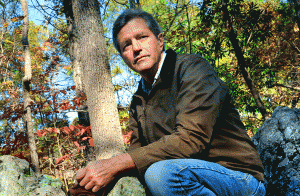Epidemiology and Justice Group
History of Group

Dr. Steve Wing, pictured in 2015.
What is the Epidemiology and Justice Group?
- The Epidemiology and Justice Group is a group of epidemiology students who aim to address what we perceive as gaps in UNC Epidemiology: support for students seeking to learn to use epidemiology for social justice efforts. We act to accomplish these goals through students teaching each other, departmental advocacy, and support for research on themes of critical history and philosophy of epidemiology, community-led public health research principles and practice, and justice-focused epidemiology.
- Teaching Each Other: We do not believe, at least at this point, that our current course offerings cover material core to the theory and practice of epidemiology for social justice. As a stop-gap solution, we aim to offer the following mutual opportunities to our fellow students: (1) an occasional journal club for the critical history and philosophy of epidemiology, with article selection from the no-longer-offered History and Philosophy of Epidemiology class (EPID 891); (2) occasional speakers on these same topics, including highlighting the work of faculty outside the core methods curriculum working in these areas and both strengths and mistakes on these themes in past faculty research; (3) a listserv.
- Departmental Advocacy: We advocate for (1) the reintegration of epidemiology critical history and philosophy as a department requirement, so all students have a baseline understanding public health’s role in general and epidemiology’s role in particular in both perpetuating health disparities and in anti-racist resistance; (2) increased curriculum support for core public health concepts central to social justice practice, e.g. methods sequence coverage of conceptualization and history of race and income; (3) departmental support of community-led epidemiology research in hiring faculty practices, research collaborations, _____.
- Health, Justice & Community Research: We believe it’s essential for students to have a space to provide feedback on equity considerations for projects, especially when involved in community-centered, social justice projects that might not be directly supported in the curriculum. We aim to provide that space for students involved in extracurricular, community-based, and/or dissertation research at occasional research meetings. We further seek to highlight faculty engaging in community-centered and social justice explicit research that may be less visible and highlight opportunities for student collaboration with that research.
